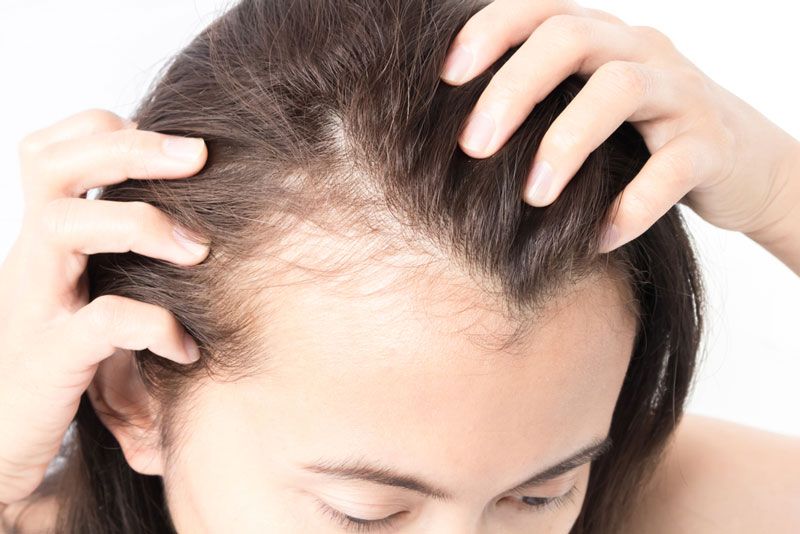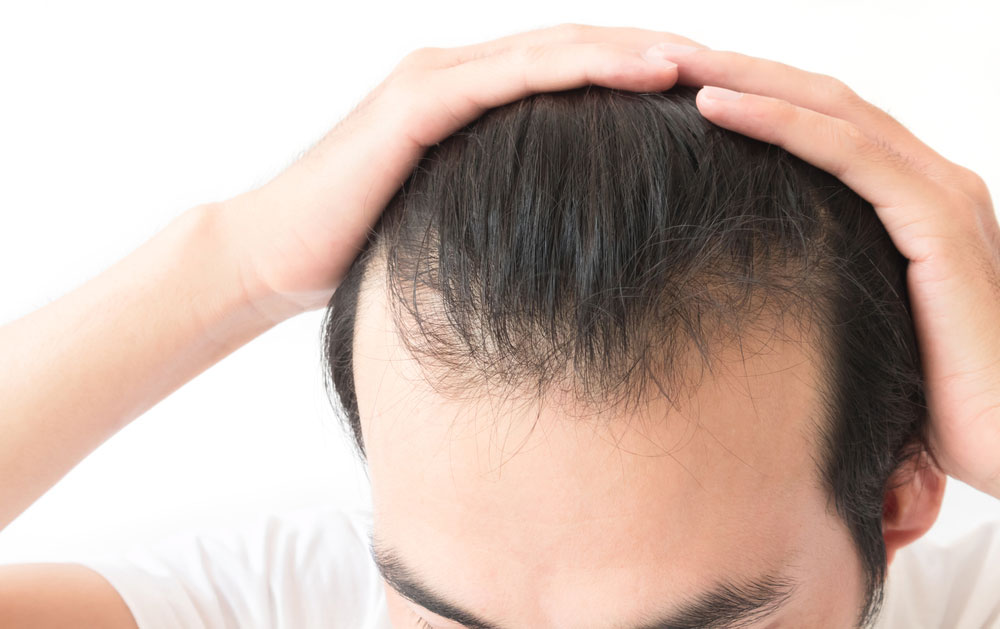
Hair loss is a problem that many men and women face. Losing hair can be a big proponent when it comes to low self-esteem in both men and women. Hair loss can be looked at by a variety of common factors including family history. Your family history is very important when it comes to estimating your ultimate hair loss. Alopecia is believed to come from both mother’s and father’s side, for example. Another cause for hair loss is when testosterone is converted to DHT, the hair follicles that are overexposed to DHT will have a progressively shorter growing phase leading to progressively shorter and finer hair shafts.
Medicinal Options
Propecia blocks the conversion of testosterone to DHT which stabilizes the hair follicles susceptible to DHT and even allowing for re-growth of miniaturized hairs for men with hair loss. Rogaine is a topical application that stabilizes hair follicles and we recommend that men use the 5% formulation every night. A 2% formula can also be used in women and is currently the standard medical treatment for female pattern hair loss.
Non-Medicinal Options
Barr Aesthetics also offers Ducray hair care products that help you maintain a healthy scalp and strong, full hair. From dietary supplements to topical treatments, Ducray offers a wide range of scientifically formulated products suitable for any hair type. Low-level light therapy (LLLT) devices have been marketed for hair growth. The Hairmax Lasercomb has FDA approval. More studies are necessary to support the role LLT should play in treating hair loss and we are excited to share this information with our clients when it becomes available.

Contact Barr Today
We understand that hair loss can be embarrassing and result in low self-esteem and continually searching for ways to hide and cover your head. Dr. Barr can help. Dr. Barr can further discuss these options products with you at your consultation. Determining how to help you regain your hair and confidence is important to us. Dr. Barr will develop an individualized treatment plan based on the extent of your hair loss, your age, your family history, and your goals.
